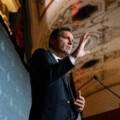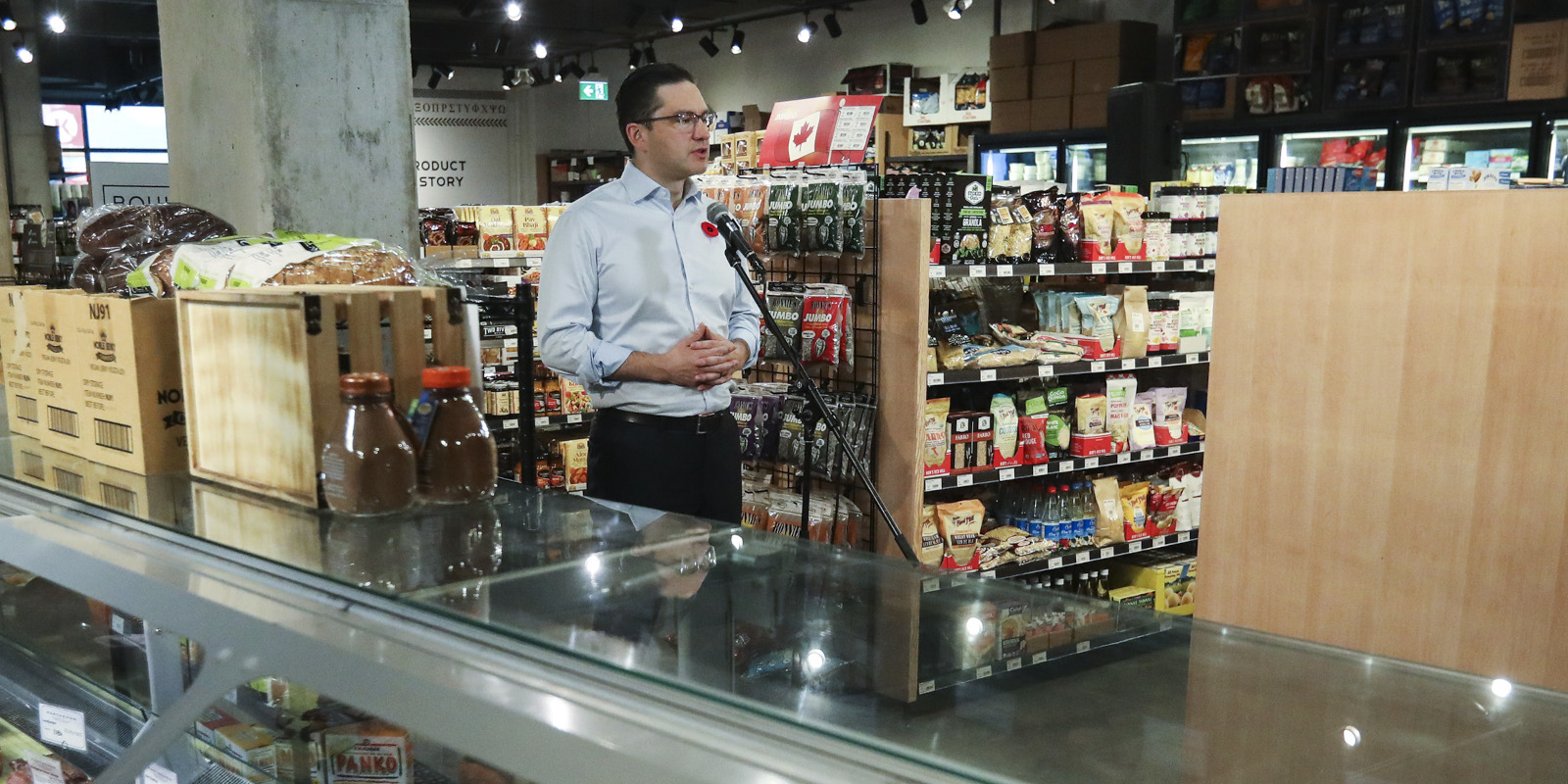In the wake of a wide-ranging ideological rethink after Donald Trump’s presidency, it seemed that for North American conservatives, everything was on the table.
Even free markets, for decades the lifeblood of just about every right-of-centre idea, were now being eyed with a new kind of skepticism.
A new crop of policy wonks, gathering at think tanks like the American Compass, skewered old orthodoxies by questioning free trade, advocating slightly more government intervention in the economy, and prioritizing policies like family benefit cheques over balanced budgets.
These ideas have provoked keen interest among Canadian conservatives and even found themselves in the most recent Conservative platform, which was touted by the party as “pro-worker.”
Now, as the post-pandemic economy roars to the extent that inflation has become a serious problem, some right-of-centre thinkers are yanking the reins on these new ideas.
Aside from a few highly concentrated areas, North American workers are doing relatively well, argued Scott Lincicome, the director of general economics and trade at the Cato Institute, a libertarian think tank, and the editor of the new book Empowering the American Worker: Market-Based Solutions for Today’s Workforce, in an interview with The Hub.
“We really need to first start out with the fact that the general story of the last 30 or 40 years for the median American worker is pretty decent,” said Lincicome. “In general, median inflation-adjusted wages are going up, and they have gone up substantially since the hyper-globalization days of the 1990s. People have found jobs outside of manufacturing. Yes, manufacturing jobs have generally declined, but they’ve been declining since basically the 1950s.”
Lincicome argued that intervening to save “good jobs” and supporting workers in these declining industries may seem like a compassionate short-term idea, but it encourages people to cling to sectors that are no longer viable.
The city of Youngstown, Ohio receives more federal aid than any city in the United States, but is still synonymous with industrial decline, he argued.
“Youngstown today is still talking about reviving the old Youngstown steel plant,” said Lincicome. “They are still trying to embrace this kind of nostalgic view of the U.S. economy… Quite frankly, I think it’s perfectly fine for the residents of Youngstown after 40 years of futility to say, ‘to heck with this. I’m out.'”
As Lincicome’s book marks a growing response from libertarian-minded conservatives to the more interventionist thinkers like Cass, a similar transition could be playing out in Canadian politics.
Conservative leader Pierre Poilievre has mentioned the libertarian economist Milton Friedman half a dozen times in the House of Commons. He has twice referenced Friedman’s reading of I, Pencil, an essay about how a pencil is manufactured, which argues that the process is a triumph of global cooperation brought about by the free market.
People close to Poilievre say it is free market economists like Friedman and Friedrich Hayek who shaped his thinking on these issues, although Poilievre has shown some flexibility in the last year as he makes populist appeals to voters.
Even as he sounds those populist notes, it’s still a big tone shift from his predecessor.
Former Conservative leader Erin O’Toole unveiled a platform in 2021 that was touted as worker-friendly, and O’Toole worked hard to attract blue-collar workers.
A Labour Day message from O’Toole not only blamed “big government” for layoffs in the manufacturing and energy industries, but also “big business,” which he argued “cares more about their shareholders than their employees.”
O’Toole’s plan even caused concern on the Left that he was going to flank the progressive parties with his opposition to unfettered free trade with countries like China.
Former Alberta Premier Jason Kenney said in 2019 that he was closely following the ideological debate around reform conservativism and expected that these ideas would gain momentum in Canada. Kenney had planned to bring his own brand of reform conservatism to Alberta before deciding that the province needed a supply-side jolt to encourage investment.

Lincicome argued that the fixation on free trade with China, whether from the Right or the Left, is unproductive.
“I think that the general approach to China in the 1990s and 2000s was actually about the best we could plausibly hope,” said Lincicome, who argued that no country, even the United States, had a veto on China joining the World Trade Organization.
At the time, any dissenting countries would simply miss out on a chance to enter the massive market that China represented while losing the opportunity to settle trade disputes through the WTO. Lincicome argued that more than two-thirds of China’s export growth came from internal reforms, rather than the WTO and anything decided by Western countries.
Cass’s book, entitled The Once and Future Worker, seeks “the renewal of work in America.” For Lincicome, the best way for a government to help workers in the future is to hedge its bets and provide flexibility rather than choosing which industries or workers need to be saved.
“Labour policy really needs to focus on maximizing autonomy and flexibility, and adaptation, because the trends of a few years ago are not going to be the trends in a few years. A few years ago, we thought everybody was moving to New York and San Francisco. Now those places are struggling to find commercial tenants. We thought that everybody wanted a nine-to-five job with health insurance, or whatever. Now we’re seeing this explosion in independent work,” said Lincicome.
Recommended for You

‘The mood is incredibly calm’: Adam Zivo on what life in Israel is like during the war with Iran

‘We now have to build on the coalition’: Pierre Poilievre on his federal election loss and the future of Canada and the Conservative Party

DeepDive: A new strategy for resilient global leadership in natural resources and manufacturing

Seniru Ruwanpura: Canada has one of the first AI ministers in the world. Here’s a mandate for success



